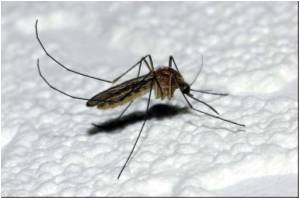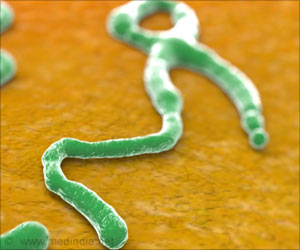Roughly up to 300,000 people die each year from malaria in Nigeria, and the latest threat to combating is a rise in insecticide resistant mosquitoes, experts have warned.

Some 75 million Nigerians, or half of the population, get attacked by malaria at least once a year while children below five years (around 24 million) get up to four bouts each year.
"The problem of insecticide resistance is very real and growing," Peter Cleary, communications director of Vestergaard Frandsen, European-based manufacturers of insecticide-impregnated bednets, said.
Malaria kills up to 300,000 Nigerians each year, according to official estimates. Around 97 percent of the 150 million Nigerians are at risk of infection, says Roll Back Malaria, a global initiative aiming to eradicate the disease.
Major constraints in fighting the endemic disease have been poverty, ignorance and a dilapidated health infrastructure.
Nigerian scientists, policy makers and foreign experts who met in Abuja last week highlighted the dangers of mosquito resistance to insecticides arising mainly from the heavy use of agro-chemical pesticides, as another concern.
Advertisement
"There is concern that the malarial vectors are becoming resistant to the entire class of insecticides the WHO (World Health Organisation) approves," Cleary said.
Advertisement
"In cases where there is high resistance of mosquitoes to insecticides, there is high usage of agricultural pesticides," said Yayo Abdulsalam, a researcher and lecturer in medical entomology at Bayero University in Nigeria's northern Kano State.
The trend is becoming more worrying with the unpredictable effects of climate change.
"Some 25 years ago we could predict (trends)... but now we cannot. It's really worrisome," said Chioma Amajor, a senior official in Nigeria's health ministry.
Abdulsalam said the likely rise in temperatures, decrease in rainfall and advance of the Sahara desert are likely to impact on the distribution of mosquitoes and the intensity of malaria.
Climate change is also likely to induce human behaviour that exposes more people to mosquito bites.
"Climate change can affect both men and the mosquitoes. If temperatures get too uncomfortable to sleep indoors, people sleep outside and the vectors that used to bite indoors can change habit and bite outside," Abdulsalam told AFP.
Malaria accounts for about 65 percent of out-patient visits and 30 percent of hospitalisations in Nigeria, says WHO and takes up around 18 percent of annual household income in treatments.
Resistance is the "first warning sign that you have to take necessary measures to ensure that the few insecticides we have... will be effective," said Sam Awolola, a scientist with Nigerian Institute of Medical Research.
Researchers also voiced worry that resistance might worsen due to access to cheap and inferior bednets.
With a government target to roll out 62 million bednets in Nigeria by the end of next year, there are fears fake products might filter into the country previously notorious for fake pharmaceutical drugs.
"Instead of a net being 100 percent impregnated (with an insecticide) they may be 50 percent impregnated, and that means the mosquitoes get half a dosage, survive and pass the gene to the next generation and resistance builds," said Awolola, adding "unfortunately we have a very porous market in Nigeria".
Deji Asa, a Lagos-based behavioural therapist who gets a malaria attack every year, believes some of the household insecticides available are no longer effective.
"I change the insecticides regularly because after a while some of them don't seem to kill the mosquitoes anymore," he said.
Source-AFP
TRI













